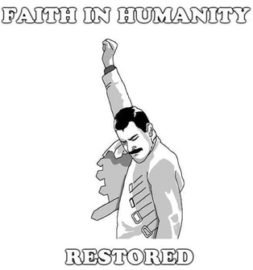by Le’alani S. Boykin, AICP

Photo by Frida Bredesen on Unsplash

How well do you think that call would have gone?
Thankfully, before I picked up the phone and had a regretful conversation, I took some time to ask myself some simple questions:
“What am I feeling?”
Disgusted, angry, frustrated!
“What am I thinking?”
He should know better than to behave that way!
I’m sick of these checked-out, jaded, “I hate the public” government workers!
Doesn’t he understand how destructive he was?!
“Oh wait, what if he doesn’t understand how destructive he was?”
There was my ‘aha!’ moment. What if he actually didn’t get it? For myself, I’ve developed an automatic radar for this kind of stuff: I’m naturally hyper-sensitive and have over a decade of experience in community and partnership building. It may seem obvious to me, but I shouldn’t have expectations for others to think the same way.
In fact, what other expectations or assumptions am I making about this person?
With that in mind I realized that I didn’t know enough to judge the situation fairly. So I decided to pick up the phone to call him and start the call another way:
“Hi, how are you doing and holding up?”
He couldn’t wait to tell someone just how hard a time he was having. From that one question, I learned that his department was experiencing budget and staff cuts unlike anything he’d ever seen (thanks to COVID), he had no idea how he was going to address this crisis, he was pulled into the meeting I was so upset about at the last minute from a higher official, he had very little knowledge of the project, and he had no time to prepare.
With that one open and exploratory question, I learned that he was severely uninformed, caught off guard, and put on the spot by his boss’s boss’s boss. Not a great place to start for relationship building! And because he got the call from such a big wig, he assumed he needed to show up as an enforcer, not a relationship-builder.
He shared his context and I shared mine, particularly the importance these community members have in our work and the necessity to maintain trustful relationships with them. As we became more comfortable with one another, I eventually told him the impact that his words and tone had on the community members on the call. He was apologetic and remorseful. He understood his impact and we hung up as friendly colleagues.

almost certainly determine how it ends”
– Bill Southworth


If you’re looking to maintain morale or holding higher standards of civility with your partner or team, then when mean behavior comes up, do your best to not cause further harm. Consult group agreements or ground rules (or build them) to remind folks of the expectations for conduct. If that doesn’t help, it may be worth calling a break so you can check-in with that person, or just give them time to blow off some steam. Perhaps you both solve the problem, perhaps not, but you can be confident that your carefulness is leaving the door open for meaningful behavior change.
Untapped Humanity Blog by Le’alani S. Boykin, AICP
